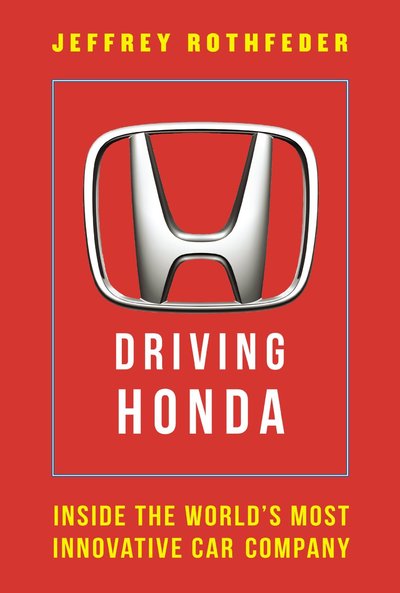

Purchase
Inside the World's Most Innovative Car Company
Portfolio
August 2014
On Sale: July 31, 2014
320 pages
ISBN: 1591844738
EAN: 9781591844730
Kindle: B00G3L6MTS
Hardcover / e-Book
Add to Wish List
Non-Fiction
For decades there have been two iconic Japanese auto
companies. One has been endlessly studied and written about.
The other has been generally underappreciated and
misunderstood. Until now. Since its birth as a motorcycle company in 1949, Honda has
steadily grown into the world's fifth largest automaker and
top engine manufacturer, as well as one of the most beloved,
most profitable, and most consistently innovative
multinational corporations. What drives the company that
keeps creating and improving award-winning and bestselling
models like the Civic, Accord, Odyssey, CR-V, and Pilot? According to Jeffrey Rothfeder, what truly distinguishes
Honda from its competitors, especially archrival Toyota, is
a deep commitment to a set of unorthodox management tenets.
The Honda Way, as insiders call it, is notable for
decentralization over corporate control, simplicity over
complexity, experimentation over Six Sigma–driven
efficiency, and unyielding cynicism toward the status quo
and whatever is assumed to be the truth. Honda believes in
freely borrowing from the past as a bridge to "innovative
discontinuity" in the present. And those are just a few of
the ideas that the company's colorful founder, Soichiro
Honda, embedded in the DNA of his start-up sixty-five years ago. As the first journalist allowed behind Honda's infamously
private doors, Rothfeder interviewed dozens of executives,
engineers, and frontline employees about its management
practices and global strategy. He shows how the company has
developed and maintained its unmatched culture of
innovation, resilience, and flexibility—and how it
exported that culture to other countries that are strikingly
different from Japan, establishing locally controlled
operations in each region where it lays down roots. For instance, Rothfeder reports on life at a Honda factory
in the tiny town of Lincoln, Alabama, and what happened when
American workers were trained to follow the Honda Way, as a
self-sufficient outpost of the global company. Could they
master Honda's three core principles: Embrace Paradox: Honda encourages respectful
disagreement and debate between opposing viewpoints, on
matters large and small. New ideas often emerge from conflict. Real Place, Real Part, Real Knowledge: Honda teaches
people to argue using facts, not assumptions. One must go to
the factory floor, the showroom, the parking lot, the
driver's seat, or the truck bed—whatever it
takes—to get the facts and make a decision that can be
supported with data. Respect Individualism: Honda often hires people with
unusual backgrounds and independent streaks. It promotes
those who question the status quo and who would probably
struggle in organizations that focus on rigid rules and systems. Rothfeder shows how the Alabama plant became a new model for
manufacturing in America. It can turn out several different
types of cars on any given day and up to 300,000 vehicles
and engines a year. Its flexible model enables unparalleled
responsiveness to market changes and recovery from mistakes. As Soichiro Honda himself liked to say, "Success can be
achieved only through repeated failure and introspection. In
fact, success represents one percent of your work, which
results only from the ninety-nine percent that is called
failure."
Comments
No comments posted.
Registered users may leave comments.
Log in or register now!
| 


 © 2003-2024 off-the-edge.net
all rights reserved Privacy Policy
© 2003-2024 off-the-edge.net
all rights reserved Privacy Policy